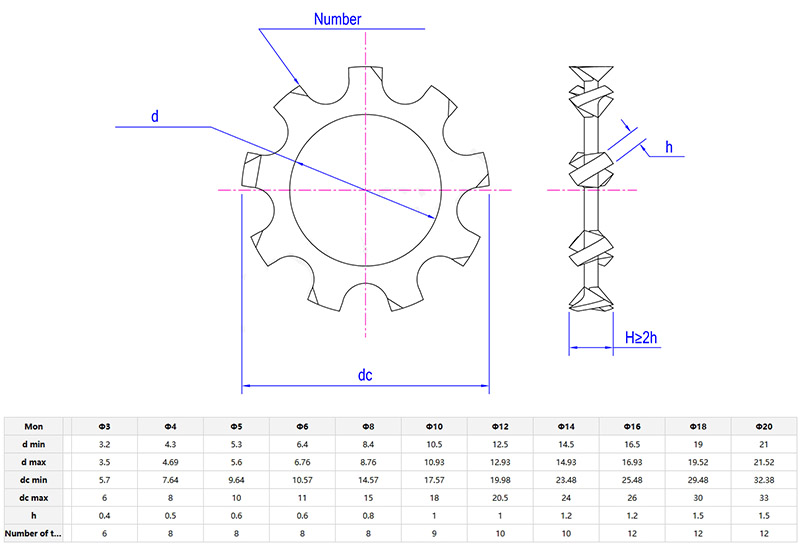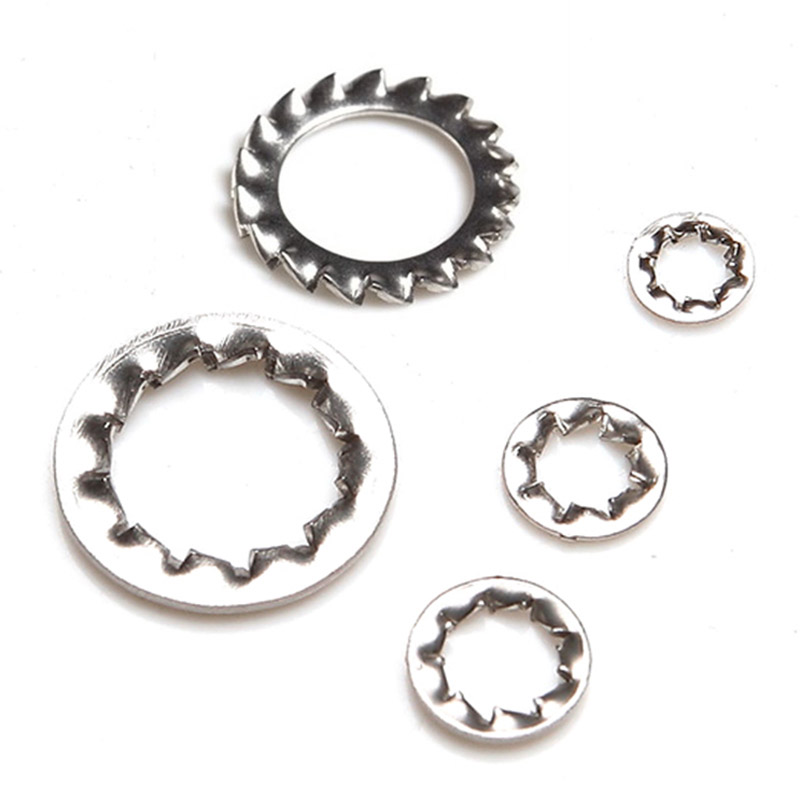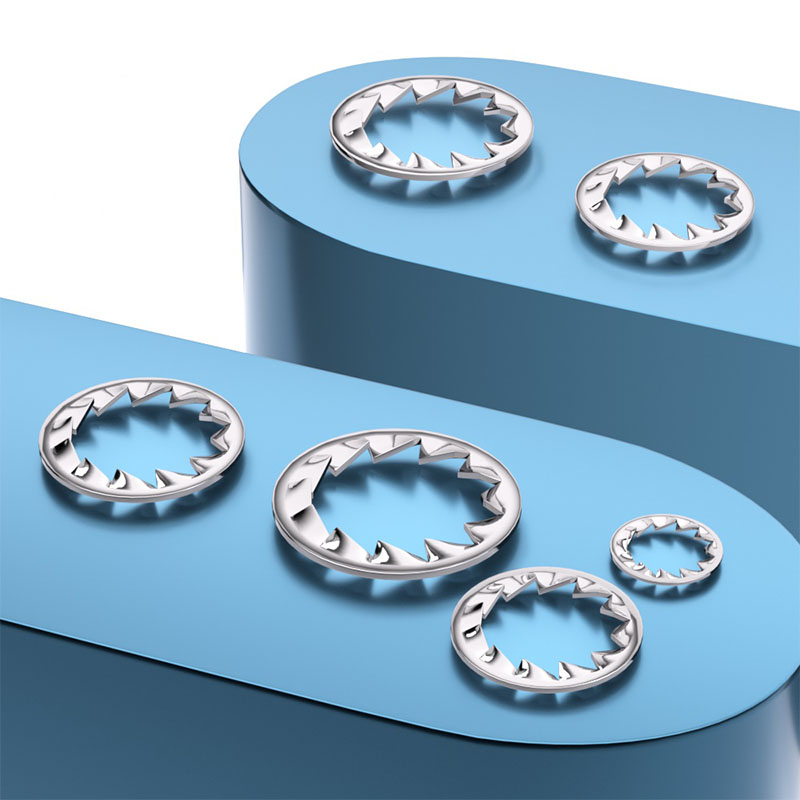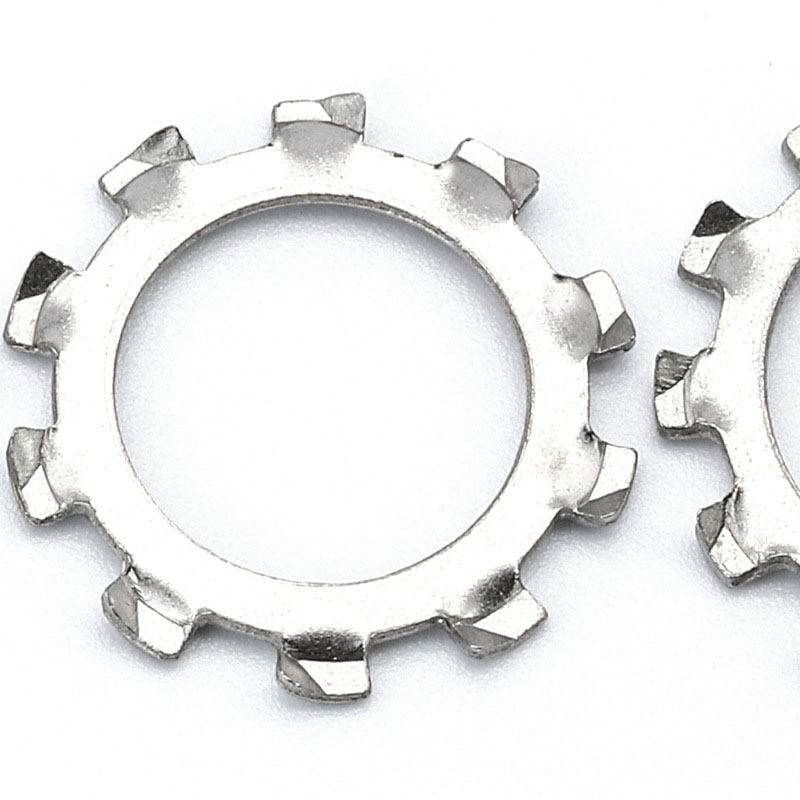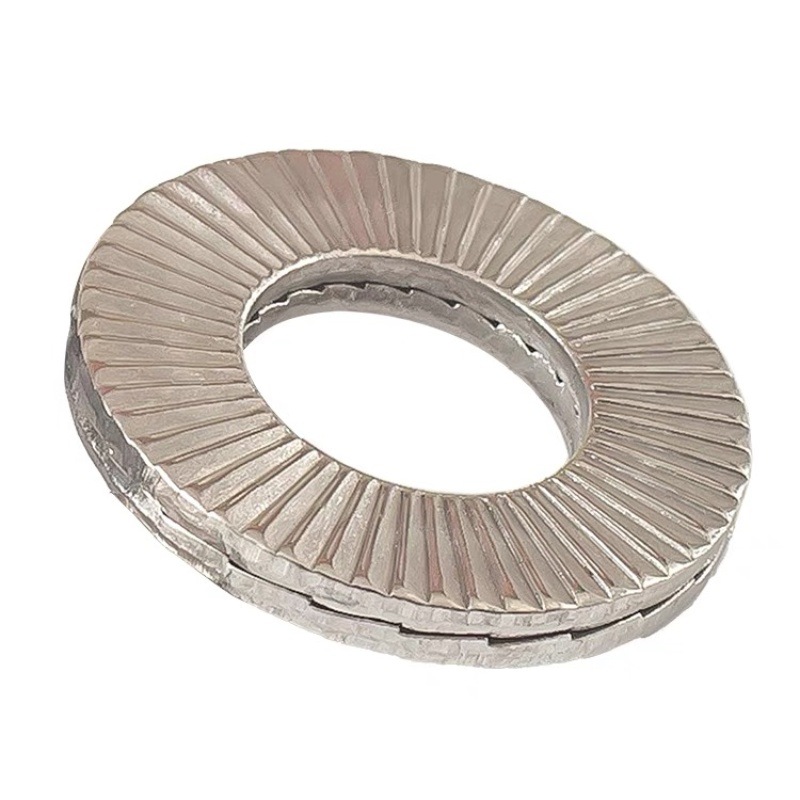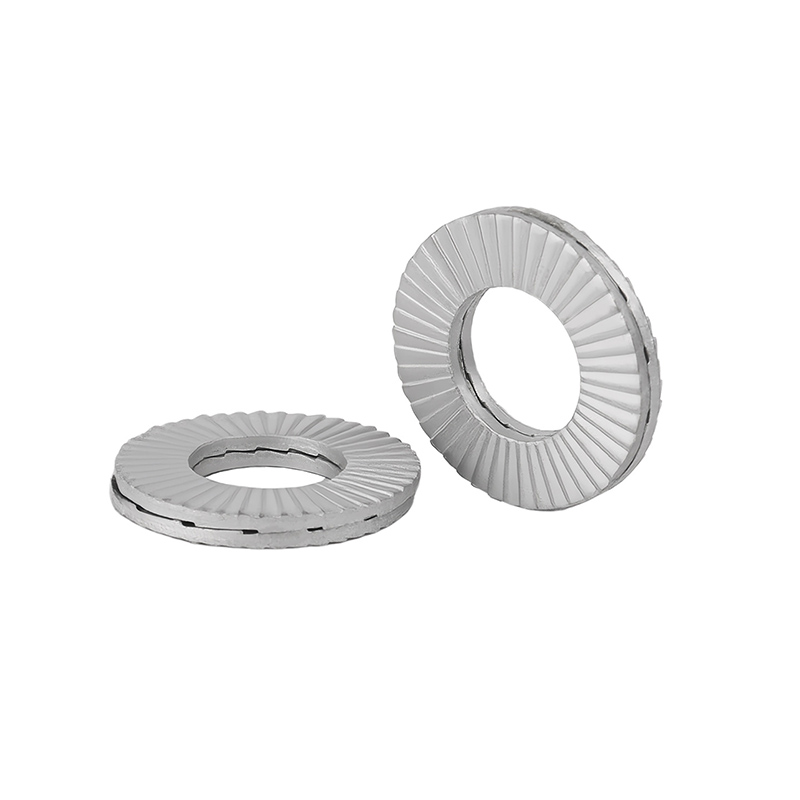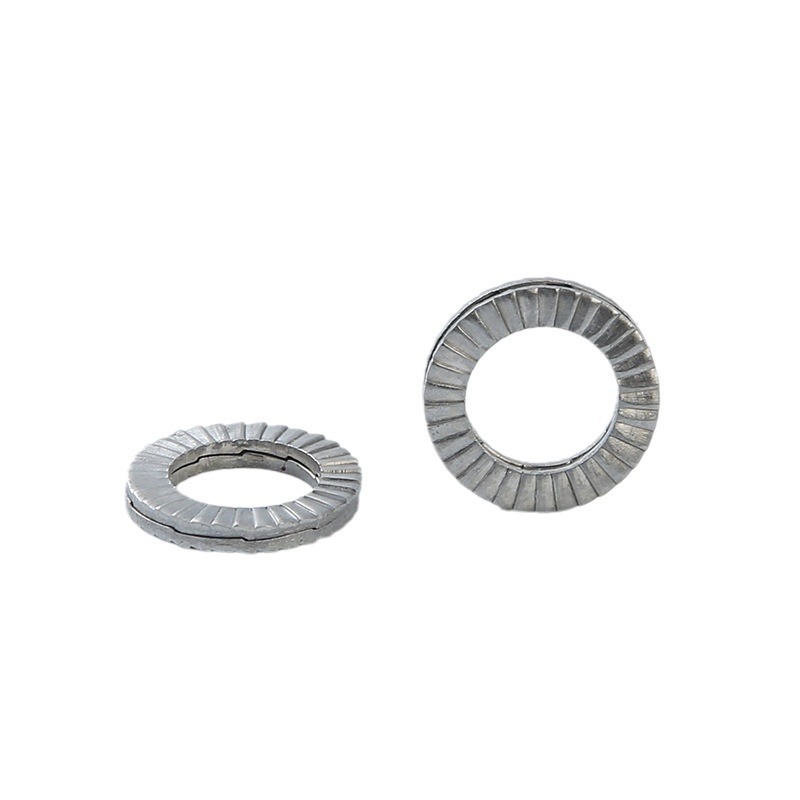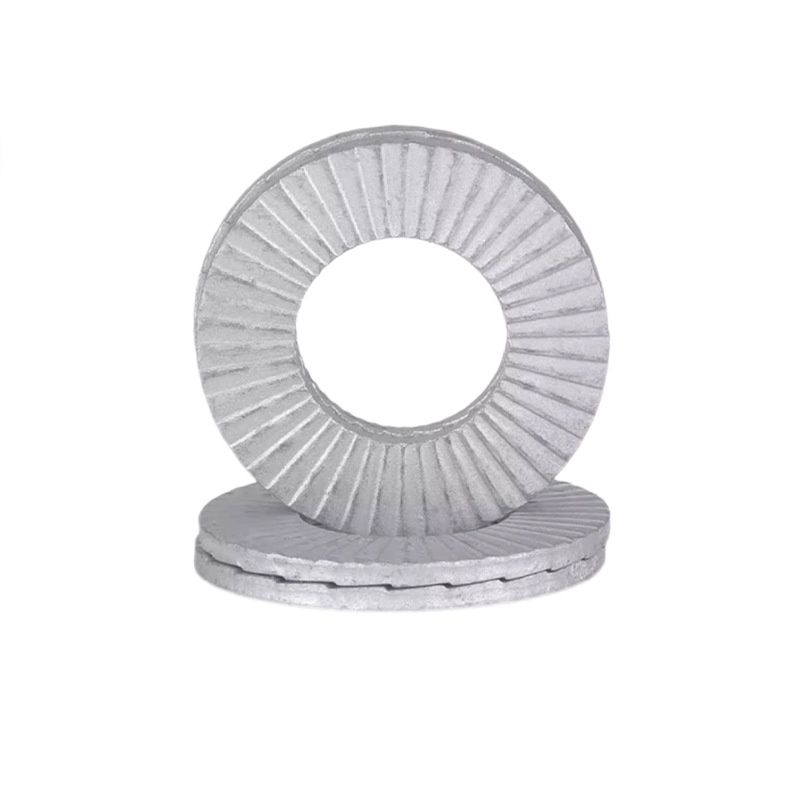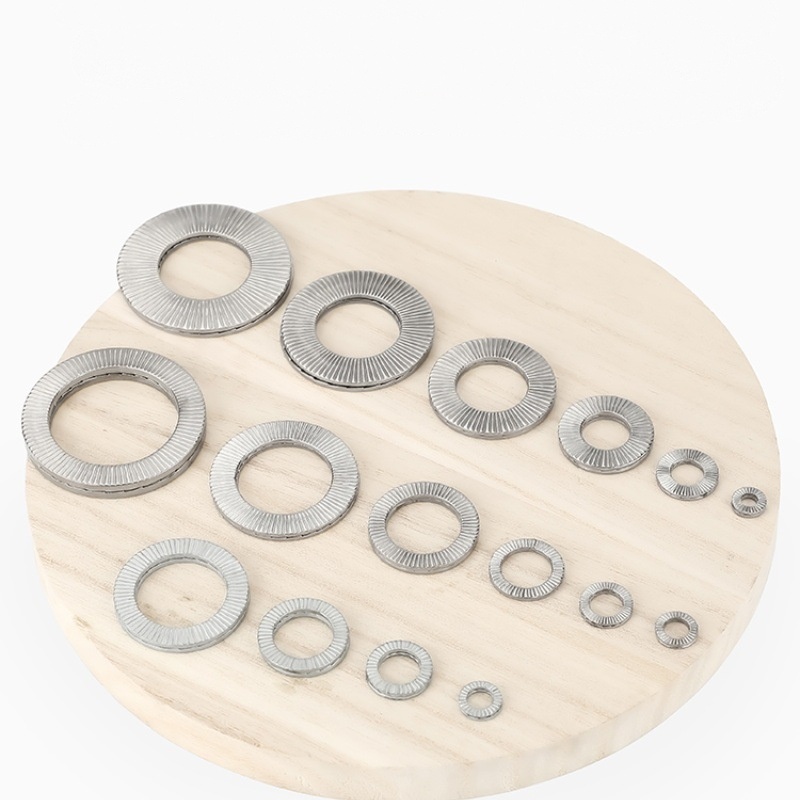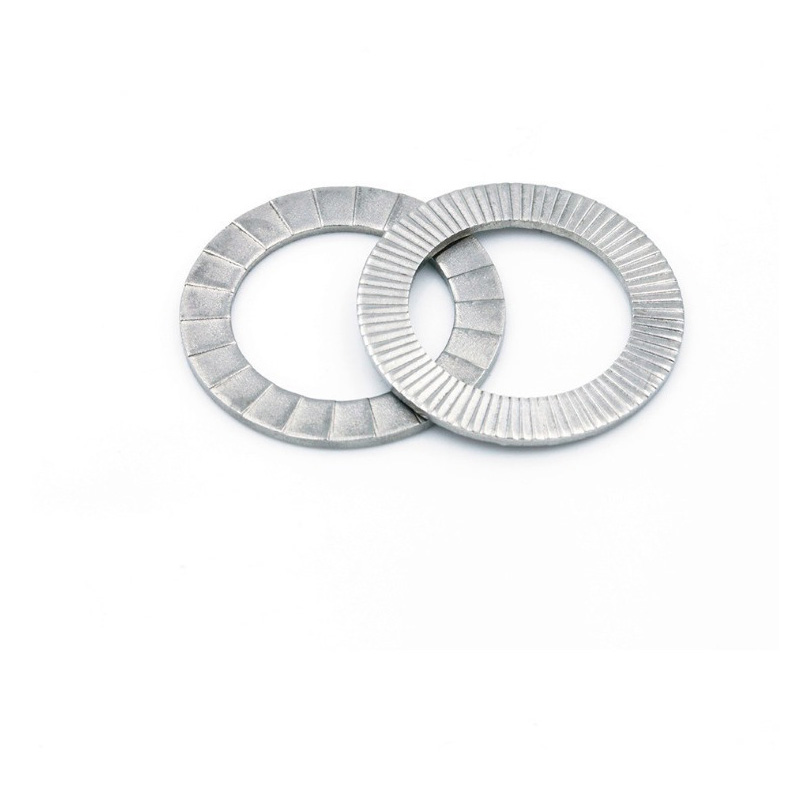Rondelle di chiusura dei denti esterni
Invia richiesta
Rondelle di chiusura dei denti esternisono realizzati in acciaio al carbonio o acciaio inossidabile, il che li rende difficili e resistenti alla ruggine. Alcuni tipi sono trattati con calore per diventare più difficili (intorno all'HRC 40-50), quindi i loro denti si mettono meglio. Le versioni in acciaio inossidabile (come SS 304 o 316) funzionano bene in ambienti bagnati o chimici, mentre quelle placcate con zinco hanno una protezione extra contro la ruggine. Il materiale ha una qualità elastica, quindi la lavatrice può piegarsi un po 'sotto pressione ma mantiene comunque una tensione costante. Sono timbrati con precisione per assicurarsi che tutti i denti abbiano la stessa forma e dimensioni, quindi ogni batch funziona allo stesso modo. Essendo sia resistenti che flessibili, queste rondelle sono buone sia per le macchine per impieghi pesanti che per le impostazioni di apparecchiature precise.
Applicazione
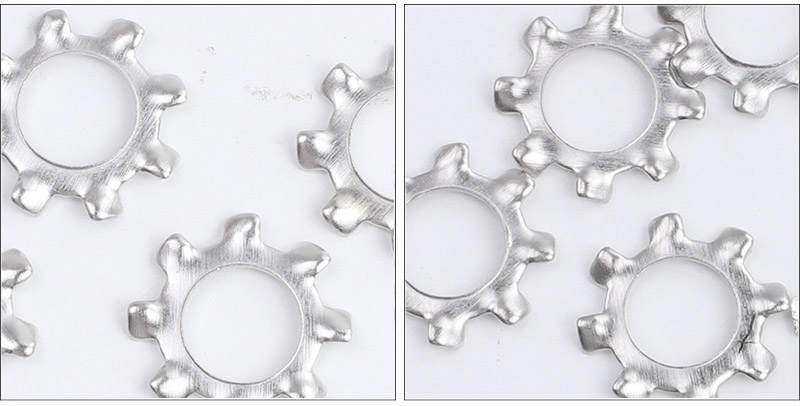
ILrondella di blocco dei denti esterniè essenziale nei motori automobilistici, nelle parti dell'aereo e nelle macchine industriali in cui le vibrazioni sono comuni. Mantiene i dispositivi di fissaggio al sicuro in sistemi HVAC, scatole elettriche e pompe idrauliche. I fai -da -te lo usano quando si assemblano i mobili, mentre i produttori lo mettono in nastri trasportatori e armi robotici. Funziona bene per proteggere flange, cuscinetti e supporti per motori perché può adattarsi a diverse configurazioni. In energia rinnovabile, contiene staffe del pannello solare e parti della turbina eolica in posizione. Sia in ambienti marini bagnati o aree ad alta temperatura, questa lavatrice mantiene la fissaggio stabile per lungo tempo in molte condizioni diverse.
Caratteristiche
D: In che modo la lavatrice bloccante dei denti esterna impedisce l'allentamento del bullone sotto vibrazione?
A: La rondella di bloccaggio dei denti esterne ha denti radiali che mordono la superficie a cui è attaccato e la testa o il dado del bullone, creando attrito per resistere al movimento. Quando ci sono vibrazioni, la tensione elastica della lavatrice assorbe piccoli movimenti, mentre i denti si bloccano nelle superfici per impedire loro di girare. Questo sistema in due parti, l'attrito dai denti più il blocco meccanico, lo fa funzionare meglio delle rondelle piatte in situazioni con carichi mutevoli.
Ma in ambienti davvero traballanti, come con macchinari pesanti, usandolo insieme alla colla in blocco dei fili o a un bullone della flangia seghettata può aiutare ancora di più. Fai solo attenzione a non tenerlo troppo, poiché ciò può schiacciare i denti e fare ilrondella di blocco dei denti esternimeno efficace.
